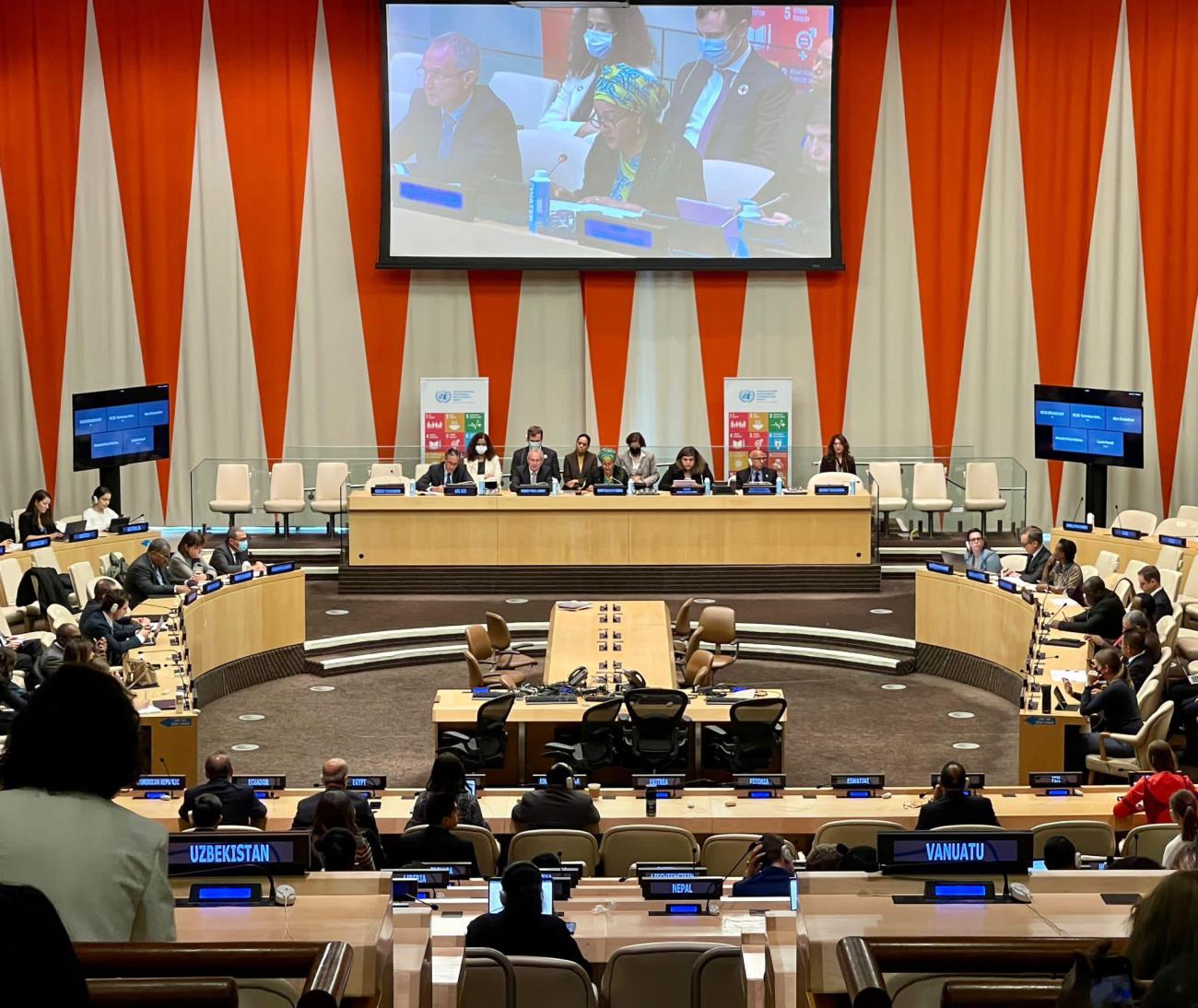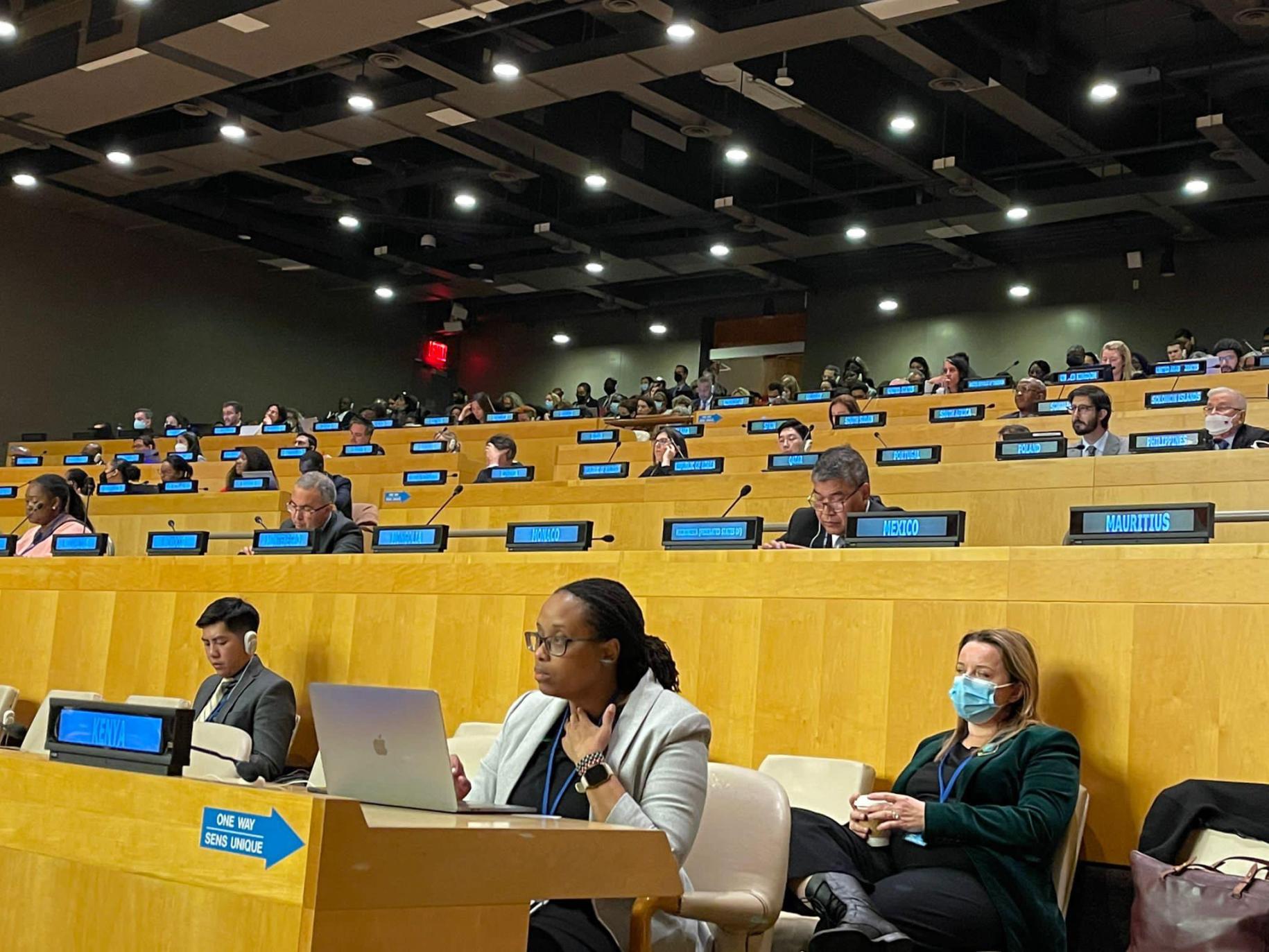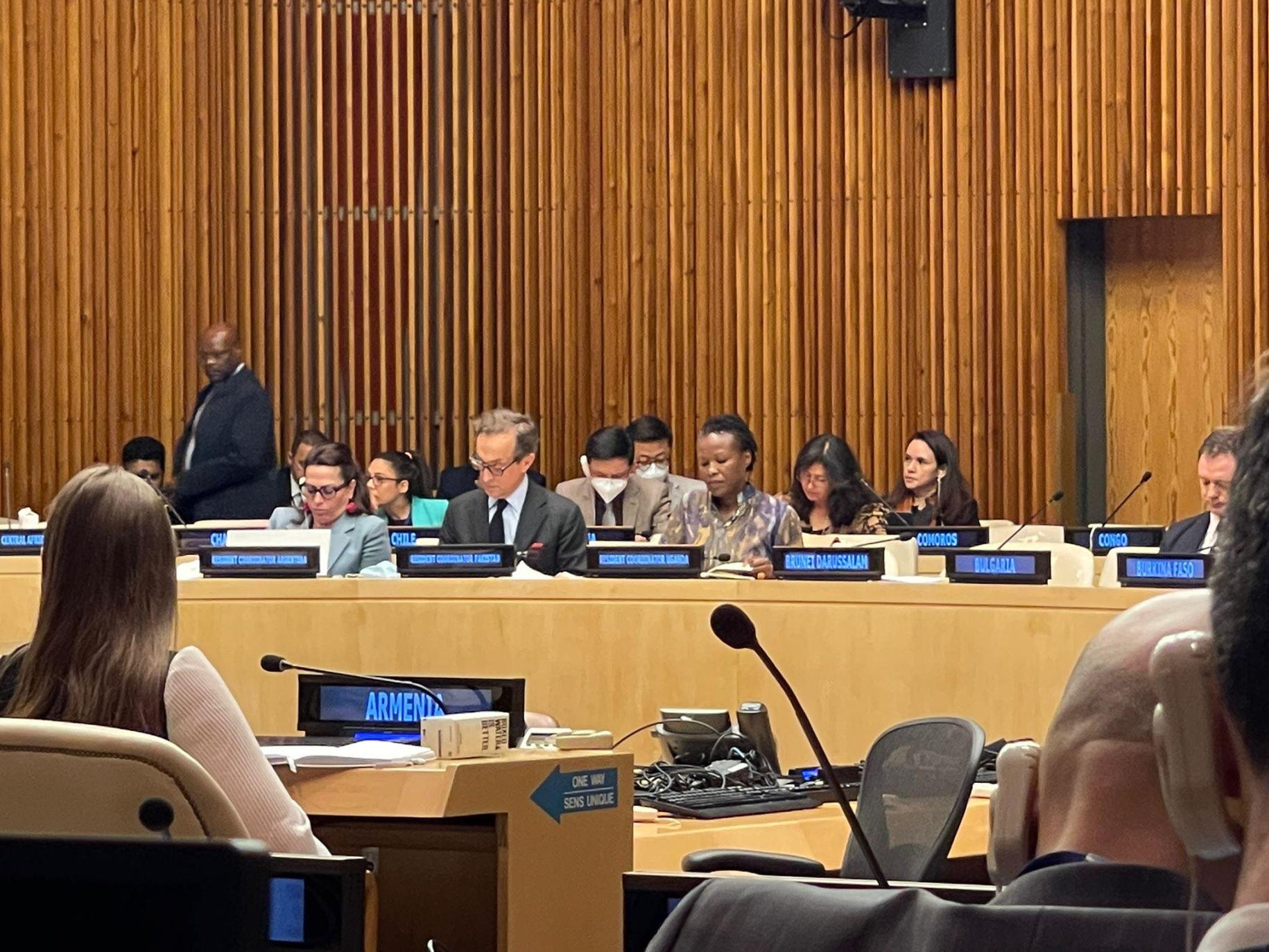Resident Coordinators dialogue with Member State representatives reaffirm opportunities to keep up the promise of the 2030 Agenda

New York, October 24 – United Nations Resident Coordinators from across all regions came together in a series of interactive sessions with the Secretary-General, the Deputy Secretary-General, UN Sustainable Development Group Principals and Member State representatives to take stock on progress and challenges four years into sweeping UN development system reforms.
Leading UN teams on the ground, Resident Coordinators discussed how the UN can better support government efforts to advance the 2030 Agenda for Sustainable Development, through the current cascade of food, energy, climate and finance crises.
This was the first in-person gathering of Resident Coordinators since the onset of the COVID-19 pandemic.
A dialogue with Member States representatives, hosted by Deputy-Secretary-General, Amina Mohammed, on Thursday 20 October provided a vital opportunity for Resident Coordinators to inform the membership of tangible results achieved in countries so far, and hear directly from ambassadors and experts about priorities and remaining challenges to support national efforts through a reformed UN development system.

Speaking at the opening of the Member State session, the President of the General Assembly, Mr. Csaba Kőrösi, emphasized why collaborative leadership and coordinated UN action at the country-level was more critical now than ever and called on Member States to ensure sustainable funding for development coordination.
“Our United Nations Resident Coordinators (RCs) leading UN teams on the ground are paramount for the 2030 Agenda. Closing the funding gap in the RC System is paramount to support the UN development system to bring actual change on the ground.”
The President of the Economic and Social Council (ECOSOC), Ambassador and Permanent Representative of Bulgaria to the UN, Lachezara Stoeva, emphasized the key role Resident Coordinators will play in supporting national authorities prepare for the SDG Summit taking place in September 2023: an important moment to assess the impact of the current crises on the global goals, and set out the actions and policies necessary to close the SDG gap by 2030.
“The engagement of Resident Coordinators will be critical for energizing national-level preparations for the SDG Summit, on the part of Governments and stakeholders. I hope that countries will come to the SDG Summit with forward looking plans and policies on how they plan to advance towards the SDGs by 2030. I count on your support to make it happen.”
Since the beginning of the Resident Coordinator reform in 2019, the Deputy-Secretary-General emphasized during her opening remarks how confidence in the system has already driven key successes, noting that “95 per cent of host Governments confirm that the reinvigorated Resident Coordinator system and the new generation of UN country teams are more integrated and more collaborative.”
On top of this, 96 per cent of host Governments report that the Cooperation Framework- the roadmap that outlines UN action priorities in country agreed with the Government - is helping to ensuring that the work of the UN is aligned with national needs and development plans.
Speaking on behalf the Least Developed Countries, Landlocked Developing Countries, and the Alliance of Small Islands Developing States, the representatives of Malawi, Botswana and Antigua and Barbuda, commended the role of Resident Coordinators in ensuring the implementation of the Doha Programme of Action, the Vienna Programme of Action, and the SAMOA Pathway.
Ambassador Francois Jackman, Permanent Representative of Barbados to the United Nations, said the reform is “unqualifiedly a success” and Small Island Developing States are reaping benefits, including through integrated responses to a number of natural disasters.
Ambassador Munir Akram, Permanent Representative of Pakistan and chair of the Group of 77 and China, also said his Government sees that the UN development system “reform has been a successful exercise.”
The representative of the United States noted that the role of the Resident Coordinator is now more important than ever: “The United States is proud to be a supporter and the biggest contributor of the Resident Coordinator system”, she said.
The representative of the Russian Federation raised concerns over the impact of sanctions on sustainable development and requested more time in future interactions with Resident Coordinators to ensure that Member States’ expectations could be well conveyed.
Resident Coordinators across different regions, including in Afghanistan, Argentina, Egypt, Jamaica, Pakistan, Timor Leste, Uganda, shared their experiences with the reform. As the UN Resident Coordinator in Egypt, the country hosting this year’s UN Climate Change Conference (COP27), Ms. Elena Panova shared the transformational role she has played to lead the UN development system through a critical moment in the climate action agenda - to mobilize global solidarity needed to get the world back on track to meet the targets of the Paris Climate Agreement.

Despite the clear successes of the development system reform over the past year, particularly the closer alignment of UN development planning with national priorities, the Deputy-Secretary-General warned that there was still a long road ahead to delivering on the promises of the 2030 Agenda as well as responding to emerging development challenges.
From mitigating the impact of the global cost-of-living crisis, advancing climate action and accelerating just economic transitions across energy, digital, and food systems, the Deputy-Secretary-General explained how the scale of the global crisis we currently face, has ‘raised the bar even higher.’
Against this backdrop of interlocking crises and growing needs, the Deputy-Secretary-General outlined three action priorities for the UN development system in the year ahead, starting with more effective policy integration to mobilizing the full UN system in optimally calibrated UN teams on the ground to closing the funding gap in the Resident Coordinator system,
“The Sustainable Development Goals (SDGs) require us to connect across disciplines and sectors to amplify impact. The UN country teams must be optimally calibrated and configured to support this.”
As the fifth global meeting of Resident Coordinators drew to a close this week, it was clear from the remarks of UN leadership, and open exchange between Member States and Resident Coordinators, that UN teams on the ground have already made strong progress to rescue the SDGs amid another year of crisis and uncertainty.
With the continued coordination and leadership of Resident Coordinators, teams are better positioned to rise to the development challenges of 2023, and, as the Deputy-Secretary-General concluded at the end of the session, ‘raise ambition and urgency needed to leapfrog from the multiple crisis to rescue the Sustainable Development Goals.’
The following Member States took the floor on behalf of country groups: Pakistan on behalf of the Group of G77 and China; Malawi on behalf of the Least Developed Countries; Botswana on behalf of the Landlocked Countries; Antigua and Barbuda on behalf of the Alliance of Small Islands States; Nigeria on behalf of the Africa Group. The European Union also spoke.
The following Member States spoke in their individual capacity in the following order: the United States, the Republic of Korea, Egypt, Azerbaijan, Colombia, Philippines, Uganda, Cambodia. Equatorial Guinea, Cameroon, Barbados, China, Algeria, the Russian Federation, Guatemala, United Arab Emirates, Namibia, Lao, Armenia, New Zealand, Morocco, Lebanon, Marshall Islands, Saint Lucia, Dominican Republic, Timor Leste, Kuwait.
This story was written by the UN Development Coordination Office





































